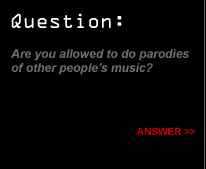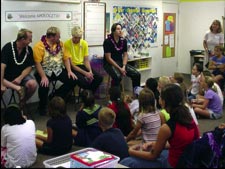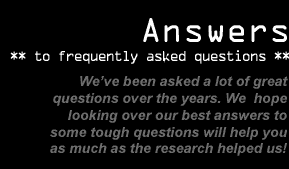|
What legalities are involved in doing parodies?
Believe us, if we didn't believe what we were doing was legal, ethical and moral, we wouldn't do it. However, that doesn't mean there's an easy answer to questions regarding copyright and parodies. That's why we employ a lawyer in Los Angeles who is an expert on intellectual properties.
Actually, in 1994, in a case involving 2 Live Crew's parody of "Oh Pretty Woman" by Roy Orbison, the U.S. Supreme Court ruled that parodies can be a "fair use" of an original song, requiring no permission or royalties. One of the main points the Supreme Court made was that when a parodist significantly changes the words and meaning of an original song to spoof it, the parody becomes a new work -- even if it uses the music of the original. And that to do a parody of a song, you need to use at least some of the music of the original to "conjure up" the original. You can't have a parody without having elements of the original in that parody.
Now, that doesn't mean a person can come along and just change a word or two and call it a parody or a new song. Furthermore, a person can't just steal the melody of a song and use totally different words that don't spoof the original in some way; the Supreme Court laid down some specific guidelines. Here's the link for the website that shows the entire transcript from Supreme Court ruling so you can read it yourself:
http://supct.law.cornell.edu/supct/html/92-1292.ZO.html
You can also check out:
http://www.artslaw.org/parody.htm
|




